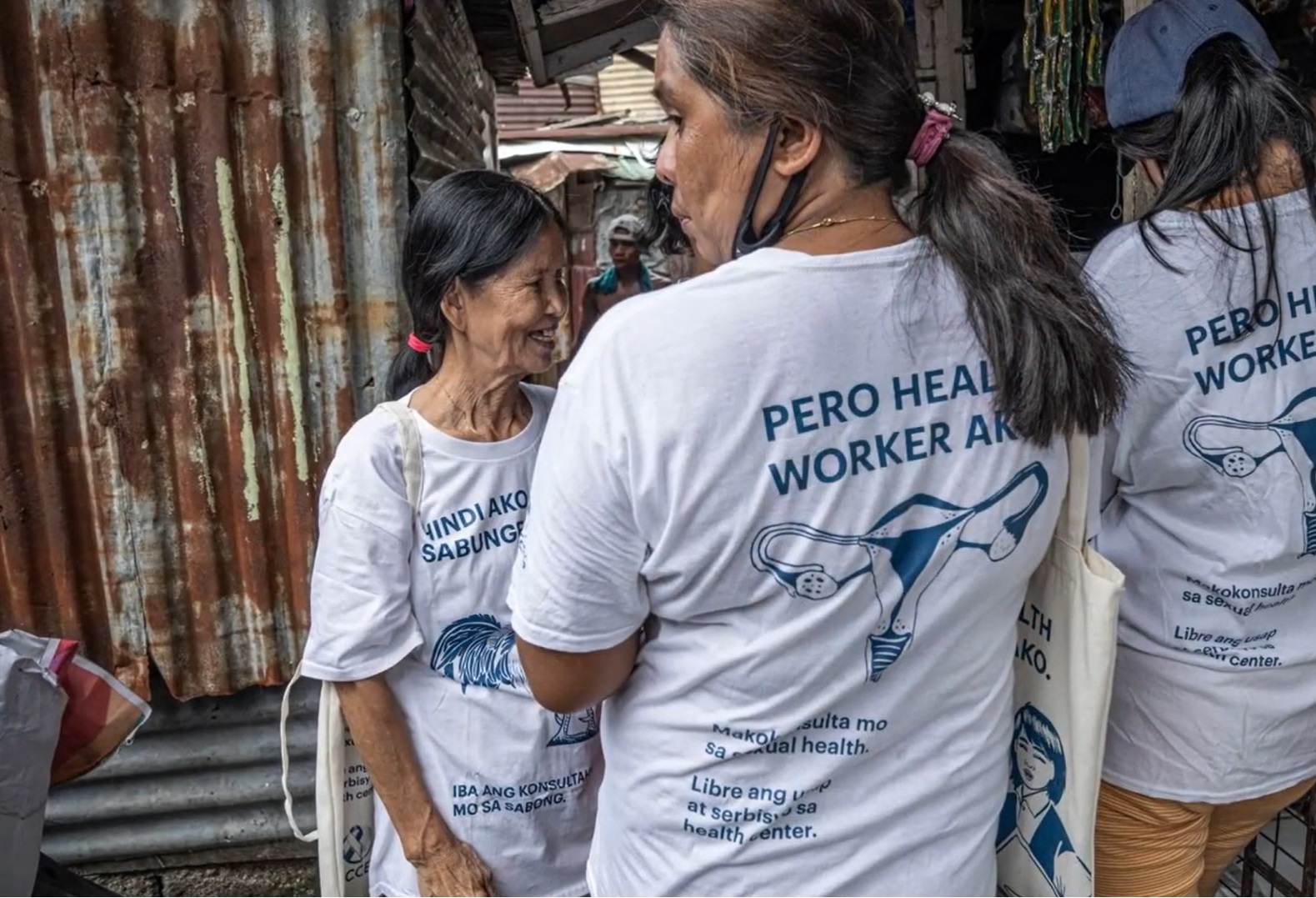As the world marks Cervical Cancer Elimination Day (17 November), momentum is building towards a historic goal: making cervical cancer the first cancer ever eliminated. Across the world, countries are taking decisive steps – expanding vaccination, introducing high-quality screening, and ensuring timely treatment for women everywhere.
Among these leaders, the Philippines is emerging as a country determined to turn commitment into reality – bringing prevention, screening, and treatment to women in its busiest cities and to its most remote island communities.
Understanding what works – and where
Since 2019, Unitaid, through its partnership with Expertise France, has been supporting the Philippines in strengthening its efforts to eliminate cervical cancer, with a particular focus on secondary prevention: ensuring that women can access high-quality HPV testing and timely treatment. This partnership has helped the country introduce new tools, test innovative models, and generate evidence on what works best in a country as diverse and geographically complex as the Philippines.
Early work led by Jhpiego in Metro Manila and Quezon City helped identify how to build effective, women-centered services in densely populated urban settings, where thousands of women may need screening each day. These early lessons laid the foundation for designing screening and treatment services that are efficient, of high quality, and ensure continuity of care.
Reaching every woman, everywhere
But the Philippines’ unique geography – an archipelago of more than 7,000 islands – meant that approaches that worked in urban centers could not simply be transplanted to small islands, mountainous regions, or remote communities.
This work is now shifting toward stronger country ownership, with leadership from the Department of Health and implementation support from the Cancer Warriors Foundation — a long-standing civil society partner deeply engaged in community advocacy and women’s health.
Unitaid and Expertise France are now working with national and community partners to explore ways to design, adapt, and test screening and treatment models that reflect the realities of women across the archipelago.
This includes expanding mobile and outreach screening to reach remote and island communities; empowering more frontline health workers to provide testing and immediate treatment; introducing self-sampling methods that offer privacy and convenience for women who face social or logistical barriers; and strengthening referral networks and data systems so that every woman receives timely, high-quality care.
Community-led initiatives are also helping to elevate women’s voices and build local demand for screening, ensuring that prevention efforts are responsive to women’s real needs. A central feature of this work is ensuring women are not only recipients of services – but informed, empowered agents in their own health. Working with community groups, the program is supporting women’s leadership, strengthening local advocacy, and building awareness at the grassroots level to reduce stigma and ensure that cervical cancer prevention becomes a shared national priority.

A turning point: domestic investment in HPV testing
Last month, the Philippines announced its first commitment of domestic resources for HPV testing, representing a significant shift toward sustainability and signaling strong political will to embed cervical cancer prevention into long-term national planning and financing.
"Acknowledging the central role of matriarchs in Filipino culture—mothers, grandmothers, and caregivers, the Department of Health has made Women's Health a core pillar of Universal Health Care. Through innovation and expanded access to care, the Philippines is taking bold steps to eliminate cervical cancer, one of the top cancers affecting women. This commitment involves expanding access to HPV testing and vaccination, and improving screening and treatment services. The goal is to ensure every woman, from city centers to remote areas, can live a healthy and empowered life. Furthermore, cancer patients, survivors, and those at risk can access financial aid through the DOH's Cancer Assistance Fund program, currently available at 34 access sites across the country,” said Health Secretary Teodoro J. Herbosa.
Cervical cancer is almost entirely preventable, yet it remains a major cause of death among women worldwide. The Philippines’ renewed focus – grounded in evidence, driven by partnerships, supported by domestic investment, and shaped by women’s voices – is a powerful example of what national leadership can achieve.
As the world commemorates Cervical Cancer Elimination Day, the Philippines stands out for its determination to ensure that every woman – in every city, island, and community – can benefit from the promise of elimination.